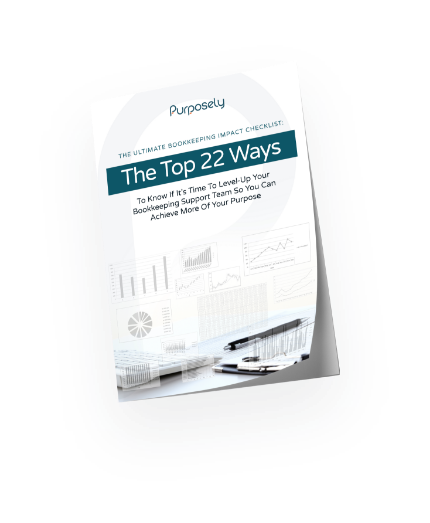Thinking of hiring a bookkeeper? Whether you’re a new entrepreneur, a CEO or a seasoned business owner, we’ve got the key considerations you need prior to making a final decision.
A great bookkeeper can skyrocket the success of any organisation.
Or, they can be a complete waste of your time and money.
I say this as a bookkeeper myself because I see it so often that most people overpay for poor bookkeeping and underpay for good financial management.
Too many businesses, business owners and managers, CEO’s, are hiring bookkeepers who don’t deliver results while creating a huge mess, and so this blog is about helping you to avoid that exact scenario.
So there’s quite a few things to consider before you hire a bookkeeper…
What is a Bookkeeper?
First up, a bookkeeper is a professional and they should act professional. If they appear chaotic in any way, then this is exactly the service you will receive and exactly how your books will be kept. So in a professional manner a bookkeeper is responsible for maintaining accurate and up-to-date financial records for a business or organisation.
And while bookkeepers play a crucial role in managing financial records and providing insights into your business’s financial health, they do not run your business.
Instead, they support business owners and managers in achieving their goals through sound financial management.
So a good bookkeeper knows that the point of bookkeeping is to accomplish those goals, your goals, and that sums up a professional approach.
Key Point 1: Before you hire a bookkeeper, make sure they can explain how their approach to bookkeeping will help you accomplish your purpose/your goals.
You need someone who is Focused on Financial Management, Not Just Data Entry
Don’t accept a proposal that just outlines an hourly rate.
Seek an explanation of their approach to financial management, and how it would help the organisation accomplish its goals (beyond just maintaining accurate records).
When you’re contracting a bookkeeper, you may not need help every day of the week, but you also don’t want someone who only shows up quarterly when things are due, or overdue in fact. That’s a chaotic management approach, and pretty much only includes dealing with the essential data entry.
Financial management requires a unique blend of skills.
The foundations include understanding of financial principles and proficiency in accounting software. But also dedication, not just in terms of time in doing the work, but also to learning (because let’s be honest, the goal posts are continually changing).
Key Point 2: Non-bookkeeping experience is just as important as bookkeeping experience.
When searching for a bookkeeper, try firstly looking for someone who understands your industry as well as they do financial principles.
Just because a bookkeeper knows the latest accounting software doesn’t mean they understand what you need.
Bookkeepers are too often focused on bookkeeping, that they ignore the more important strategies around good financial management, they ignore their ability to share meaningful insights from the years and years of experience they have.
Key Point 3: A Good Bookkeeper Is Not A Magician
If your business model, products, or services don’t provide actual value, the best bookkeeper in the world won’t be able to help you if you’re not willing to change.
Hiring a good bookkeeping is not a shortcut to financial success — it’s just a way to highlight things that deserve highlighting.
So if you hire a bookkeeper to help you, you better make sure what you give them to amplify is worth it, or be ready to have some hard conversations.
I come back to what I said earlier that a bookkeeper doesn’t run your organisations, you do, but if you’re open to a strategic partner, a good bookkeeper can help you in your efforts to create a better organisation.
You should consider bookkeeping as an entry point. It’s the beginning of financial conversations within your business.
But those conversations have to ultimately lead somewhere. To informed decision-making, financial stability, or business growth, whatever it may be that aligns with your goals.
So make sure you hire a bookkeeper who can not only tell you how to manage your finances effectively, but also has the experience to help you plan to convert that financial management into action.
Key Point 4: A contracted Bookkeeper must be Registered with the Tax Practitioners Board
That is, if you are not employing them directly through your business, they must be a registered BAS agent as a minimum.
Ask them for their BAS Agent number and double check that it is active on the Tax Practitioners Board online register.
And finally, my top 5 questions to ask potential bookkeepers to test their knowledge and technical expertise:
1. Ask them to tell you the difference between a profit and loss and a balance sheet. They should explain that a profit and loss provides a summary of an organisation’s revenue and expenses over a specific period of time, showing net profit or loss. A balance sheet provides a snapshot of the financial position of the organisation at a given point in time. They should explain that the balance sheet details the assets, liabilities and equity. If they can explain, this means they understand reporting.
2. Ask them to provide an example of a GST free supply? Examples they might give include fresh food, milk, bread. Then ask them to provide an example of a GST supply? Examples here might include telephone bills or stationery. If they can provide examples, this shows they have accounts payable experience and understand the GST legislation.
3. Ask them to tell you what the acronym OTE stands for when it comes to payroll? They should answer Ordinary Time Earnings. This shows that they have payroll processing experience.
4. Ask them to tell you the difference between cash accounting and accrual accounting. They should answer that Cash accounting records transactions when cash or monies are exchanged, whereas accrual accounting records transactions when they occur, (based on the date of the records), regardless of when cash is received or paid. This is important when it comes to preparing Business Activity Statements.
5. Ask what the current % rate of Superannuation is? Currently it is at 11%, And it will increase to 11.5% from 1st July 2024 and 12% from the 1st July 2025. Again, this question tests their payroll experience.
How I Can Help You With Your Bookkeeping?
If what I’ve said above resonates with you and you’d like some help in working out who to hire, reach out! I’m always happy to help. Alternatively, if you want to check if your current bookkeeper is serving you best, download our Ultimate Bookkeeping Impact Checklist. It lists the top 22 ways to know if it’s time to Level-Up your bookkeeping support.
And just in case you want to know how we can assist, check out our list of services here.





